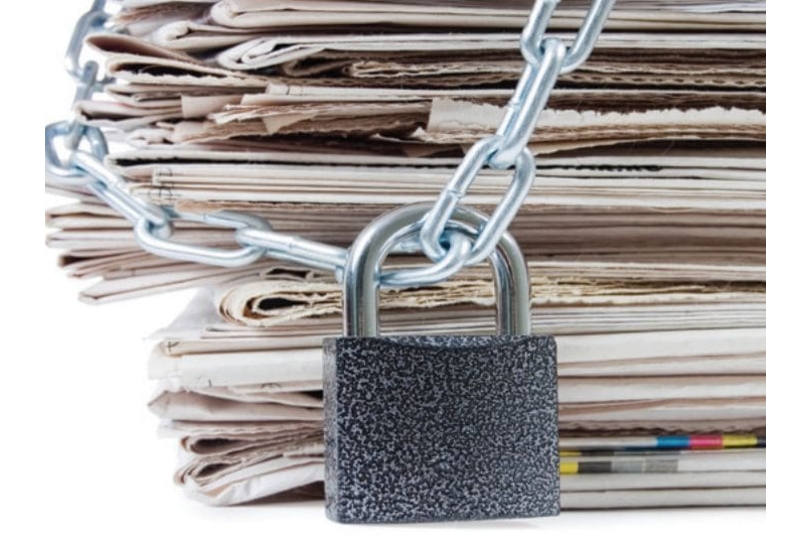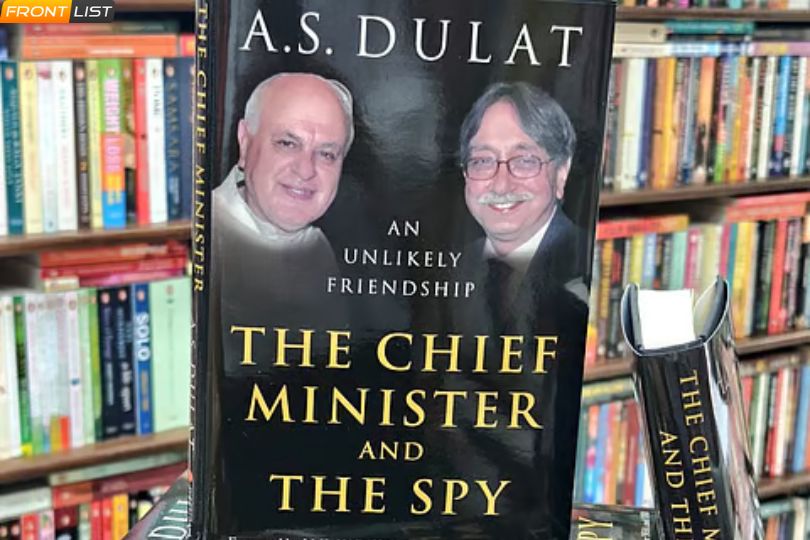What exactly is'soft' censorship? Even when school districts do not prohibit books, they limit student access to them
on Aug 23, 2022

Following a year of increasing book bans and the ensuing backlash, public schools are increasingly relying on soft censorship to regulate which literature students may access.
In addition to outright prohibiting books, school districts are separating titles about so-called sensitive subjects from others in school libraries, labelling them with warning labels or requiring parents to sign opt-in slips allowing children to read them — paperwork that can easily be overlooked among the piles of other forms families must fill out at the start of the school year
Free speech defenders believe these practices are just as worrisome as bans, especially when the books targeted are overwhelmingly about race, gender, and sexuality and are authored by women, LGBTQ+, and people of colour.
"The First Amendment actually bars viewpoint-based access limits," said Jason Groth, deputy legal director for the ACLU of Utah, where the state's largest district has imposed book restrictions. "Putting disfavored books in another section of the library that... requires parental permission, or adding any other type of restricted access, thus, violates the First Amendment." One thing to keep in mind is that it places a stigma on the substance of those publications."
PEN America, a charity that campaigns for free expression, receives a handful of reports of book banning each year. This changed substantially between 2021 and 2022, when the organisation recorded 1,586 occurrences of book bans involving 1,145 unique titles by 874 authors. 41 percent of the prohibited novels involve protagonists or other important characters of colour, 22 percent explore race, 33 percent have LGBTQ+ themes, and 25 percent contain content about sex, puberty, or relationships.
The surge of book bans follows state legislation restricting what schools can teach on race, sex, and gender. The legislation coincided with the rise of parent-rights organisations, which gained traction during the pandemic and sought more input over what their children learn in school. Politicians have exploited such parents' anxieties, which were sparked into action after conservatives began spreading the myth that public schools educate pupils critical race theory and indoctrinate them into a radical left agenda. Teachers and administrators have experienced harassment and animosity from the communities they serve as education has become the core of the nation's culture wars.
Book restrictions, including "soft bans," are "creating a crisis situation for our educators and students that simply does not need to exist," according to Shirley Robinson, executive director of the Texas Library Association, which recently formed a statewide advocacy coalition of more than 3,000 Texas residents to advocate for students' freedom of inquiry. "What's really frightening to me is that parents aren't aware that this is happening because obviously an opt-in policy means that if you miss that piece of paper, among the thousand pieces of paper that you get when your child returns to school at the beginning of the year, your child will not have access."
Robinson went on to say that some librarians and teachers self-censor by deleting specific reading materials or genres before anyone complains, or just not ordering books that they believe will result in complaints. She went on to say that these educators' concerns are not unfounded, considering that conservative organisations are educating Texans how to run for school boards, oppose library publications, and watch teachers and librarians on social media.
PEN America discovered that 41 percent of the book-banning instances it investigated over a nine-month period are linked to politicians advocating for books to be removed from schools. Policymakers will continue to play a key part in book banning, as PEN America anticipates that school oversight bills will be passed again next year. These laws advocate for "curriculum transparency," school quiet on LGBTQ+ topics, and book bans.
In Texas, a list of 850 books classified by state Rep. Matt Krause as possibly objectionable continues to affect which reading materials school districts include in their collections. Krause first published the list last October, and Texas now tops the country in book bans, with 713 book deletions during the nine-month period studied by PEN America. In addition to absolute book bans, Texas schools are imposing mild control on titles. Parents in districts such as Keller, Cy-Fair, and Richardson can choose whether their children have access to the whole library catalogue.
According to Deborah Caldwell-Stone, head of the American Library Association's Office for Intellectual Freedom, book restrictions are largely the result of prejudice towards historically oppressed communities.
"The fact is that gay, lesbian, bisexual, and transgender individuals, African Americans, Latinos, and Indigenous people have finally found a voice and a place in our society, as well as a voice and a place in libraries," she said. "Now we're witnessing an effort to silence those voices, stigmatise those people, and send a message of exclusion that, given that these are public institutions, should not be happening at all."
The use of soft censorship to restrict access to school book collections is not limited to Texas. School districts in Utah, Virginia, Nebraska, Pennsylvania, Florida, and California have enacted policies that give parents more control over what students read, alarming critics who argue that these restrictions violate students' free speech rights, ignore school librarian training, and send harmful messages about the books targeted.
Alpine School District, Utah's largest, chose in July to remove 52 novels by 41 writers, including Jodi Picoult's "Nineteen Minutes," Judy Blume's "Forever," and Mariko Tamaki's "This One Summer," all of which were written by women and featured sex scenes or LGBTQ+ stories. According to PEN America, 42 percent of the novels selected by the district have LGBTQ+ characters or themes.
The decision was made in response to the March passing of House Bill 374, a Utah law outlawing "sensitive materials in public schools," after groups like Utah Parents United pressured legislators to take action to remove books deemed obscene or improper from classrooms. However, following public outcry over its decision to remove dozens of books from school libraries, the Alpine school board temporarily postponed its plan to remove these books from library shelves. Instead, it will place these books in restricted areas of school libraries and allow parents to determine whether or not their children may borrow them.
The board's decision to lift the book ban is a "move in the right direction," according to Jonathan Friedman, PEN America's director of free expression and education programmes. However, he said that the new policy "remains a barrier to the books."
Alpine School District did not respond to a request for comment from The 19th.
Collier County Public Schools in Florida recently made news for putting warning labels on more than 100 novels, many of which had racist or LGBTQ+ themes. The warnings state that the books have been deemed "unsuitable for students" by some members of the community.
House Bill 1467, a Florida bill passed this year, will empower residents to dispute library books they find "pornographic" or otherwise offensive. The statute requires school districts to disclose all such complaints to the education commissioner, who can then include the titles on a list of book challenges issued to schools. According to PEN, the purpose is to discourage schools from placing any works on the list in their libraries.
According to Caldwell-Stone, book challenges are becoming more popular as a result of the efforts of a small number of groups that have been particularly vocal about reading materials. They've "seized control of the process and actually caused a moral panic about books that are both age- and developmentally appropriate but cover themes they disagree with," she says.
Moms for Liberty, founded by two former Florida school board members, is a national organisation that campaigns for parents to have more control over their children's education. Tiffany Justice, co-founder of The 19th, told The 19th in March that some novels in school libraries, such as George M. Johnson's "All Boys Aren't Blue," is too graphic for students. That book is an essay-based coming-of-age memoir about growing up Black and LGBT.



.jpg)






.jpg)

.jpg)
.jpg)
.jpg)
.jpg)

.jpg)










Sorry! No comment found for this post.